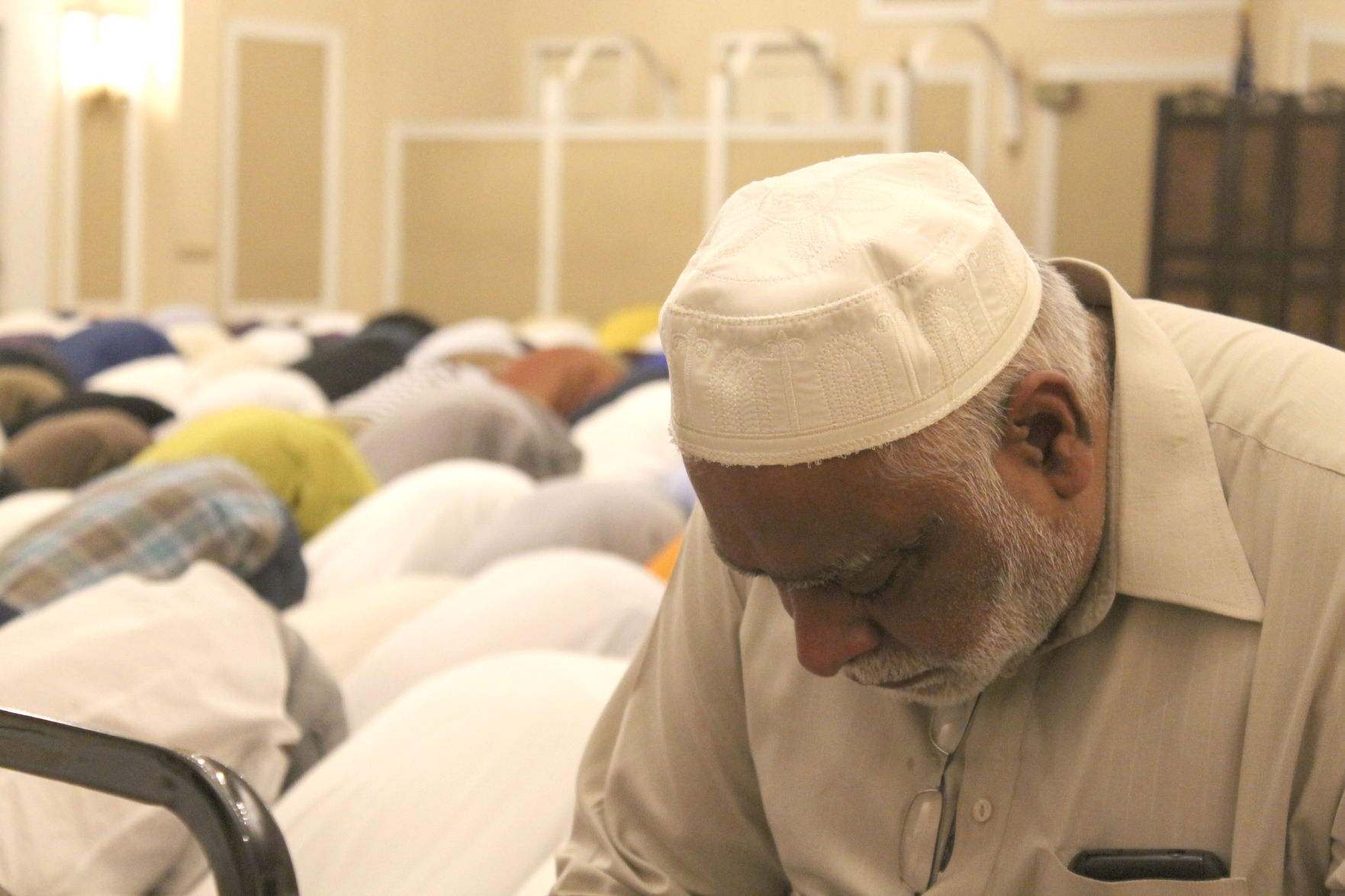Only seven people came to the Hillside Islamic Center’s first Eid al Fitr prayer service after it was established in 2002, center President Abdul Aziz Bhuiyan said.
But more than 1,300 people of many different ethnicities came to three prayers at the New Hyde Park Elks Lodge Wednesday morning to celebrate the holiday marking the end of Ramadan, the month-long period of daytime fasting.
The numbers are a testament to the “tremendous” growth in New Hyde Park’s Muslim community, which includes “all faces of Muslims” from India, South Asia, the Middle East, Africa and other places around the world, Bhuiyan said.
“The beauty of the community is that it is receptive to everyone,” Imam Ibad Wali said.
Eid al Fitr, one of the holiest days on the Muslim lunar calendar, is one of only five days on which fasting is forbidden after 30 days of abstaining from food during daylight hours during Ramadan, Wali said.
Celebrations are akin to Christmas for Christians, Bhuiyan said — after praying in the morning, families usually gather to eat and exchange gifts in the afternoon.
Eid al Fitr is an occasion to celebrate blessings from Allah, Islam’s omnipotent god, and to seek salvation through Allah’s forgiveness of sins, Wali said.
“Allah reminds us it is not the food that has the nourishment, not the sustenance,” Wali said in his sermon Wednesday morning. “The nourishment, the power … is in Allah.”
This year’s Ramadan has been marked by mass killings across the world by terrorists claiming to be Muslim.
The Islamic State terrorist group has claimed responsibility suicide truck bombing in Baghdad, Iraq, on Sunday that killed more than 200 people. The group is also suspected to have bombed the Great Mosque in Medina, Saudi Arabia, one of Islam’s holiest sites.
Terrorists claiming the Muslim faith “have no religion” and are “driven by a completely misguided ideology,” Bhuiyan said.
Contrary to false statements from politicians such as Ted Cruz and Donald Trump, he said, most victims of terrorism are Muslims, and most Americans killed by gun violence die at the hands of other Americans.
Terrorist attacks and anti-Muslim rhetoric stir up fear among Muslims and non-Muslims alike and make life harder for Muslims locally, Wali and Bhuiyan said.
But they will not stop the Hillside Islamic Center from serving its congregants or its neighbors, Wali said.
“We’re definitely not backing down,” he said. “(We’re not) going to give in to this narrative or these people that are promoting these heinous crimes. We’re going to patiently persevere. We’re coming, actually, together stronger as a community to make sure that we change this narrative.”
The Hillside Islamic Center has members from New Hyde Park, Floral Park, Roslyn and Bellerose, member Saleem Tatari said, and currently meets on 80th Avenue in New Hyde Park. Its six-year effort to build a new mosque at 300 Hillside Ave. has met construction delays and concerns from neighbors, which mosque leaders have worked to address along the way, Bhuiyan said.
Wali said national narratives of religious division between Muslims and other Americans do not reflect the reality in New Hyde Park, where the Muslim and other communities function well together.
But building relationships with the community is an ongoing effort, Bhuiyan said.
Some in New Hyde Park were suspicious when the Hillside Islamic Center first opened, Bhuiyan said.
But those attitudes have mostly eroded as the Muslim community has become more firmly rooted here and established strong relationships with elected officials, police officers and firefighters, he said.
The mosque holds five daily prayer services and offers religious education classes for children and adults, Wali said.
Members also volunteer at soup kitchens, help clean local streets and engage in many other community service efforts with local organizations and other mosques, he said.
To encourage its many first-generation Americans to engage with their non-Muslim neighbors, the mosque asked members to give their next-door neighbors a gift to celebrate Eid al Fitr, Bhuiyan said.
“This is how we at least begin relationships, so that your neighbors know who you are instead of somebody else giving them, ‘This guy is this,’” Bhuiyan said.



